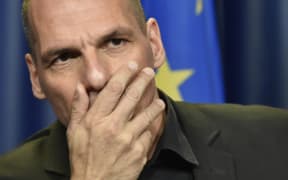The International Monetary Fund (IMF) has attacked the bailout deal offered by eurozone leaders to Greece.
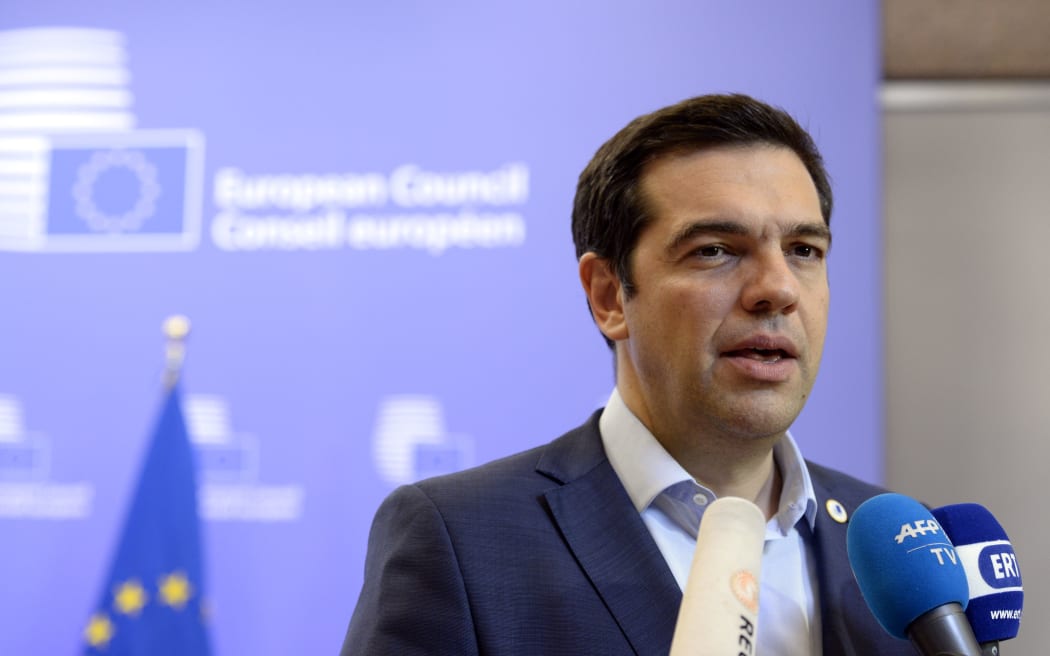
Alexis Tsipras talks to the media at the end of the Eurozone Summit in Brussels on Monday. Photo: AFP
The creditor said Greece's public debt had become "highly unsustainable" and it needed relief from its debts.
The IMF suggested options including writing down the debt - the move most fiercely resisted by creditors.
The Greek parliament must pass four pieces of legislation on Wednesday.
It is the first requirement of the deal offered after hours of negotiation in Brussels on Monday.
The measures - which face resistance from Prime Minister Alexis Tsipras' own MPs - include taxation increases and pension curbs.
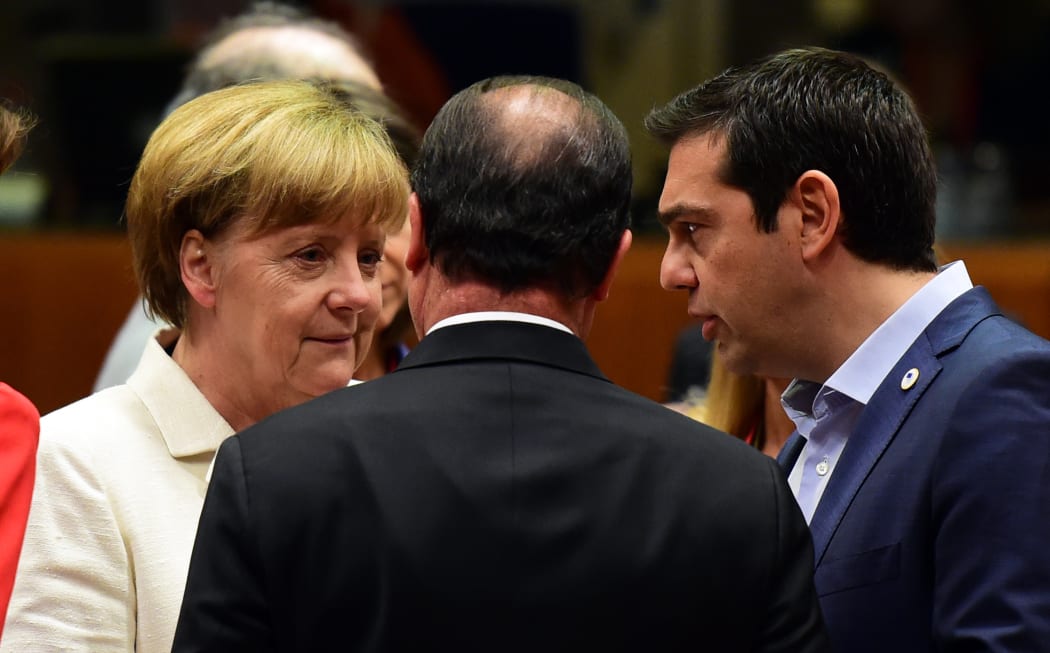
German Chancellor Angela Merkel, French President Francois Hollande (centre) and Greek Prime Minister Alexis Tsipras before the start of the summit. Photo: AFP
Greece owes about 10 percent of its debt - €1.6bn ($NZ2.6bn) - to the IMF.
It has missed two deadlines for repayment to the fund and is the first EU country ever to do so.
BBC Economics Editor Robert Peston said the IMF's assessment would make it much harder for Mr Tsipras to persuade the Athens parliament to back the measures needed in Wednesday's votes.
It brings into question the validity of the reform measures demanded by the eurozone and endorses the kind of debt write-offs the Greek public have been arguing for, he added.
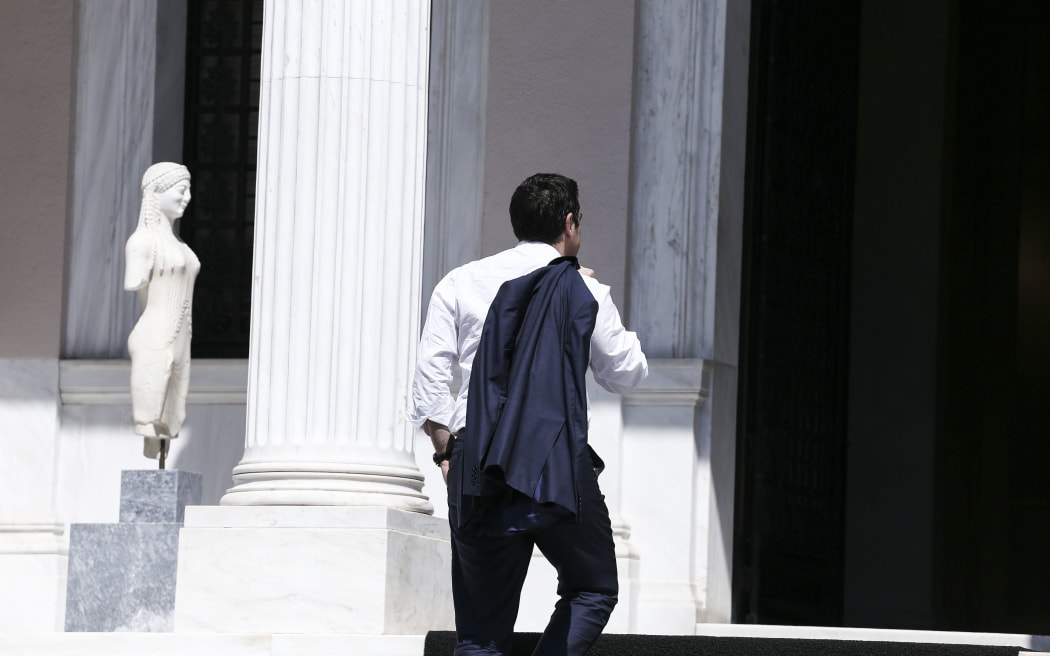
Greece's Prime Minister, Alexis Tsipras, heads into a cabinet meeting on his return to Athens. Photo: AFP
The IMF said it regarded forecast rates of growth for Greece as unrealistically high.
Its analysis, released on Tuesday (local time), pointed to Greek government debt reaching a peak of close to 200 percent of GDP, or national income, over the next two years, which it called "highly unsustainable".
Mr Tsipras said in an interview on state television that he did not believe in the bailout offered but was willing to implement it to "avoid disaster for the country" and the collapse of the banks.
The conditional agreement to receive up to €86bn ($141bn) from the EU over three years depends on further economic reforms - including the labour markets, banks and privatisation - being passed after Wednesday.
Hard-liners in Mr Tsipras' own Syriza party are likely to rebel and the junior coalition party, the Independent Greeks, have offered only limited support for the reforms.
Meanwhile, unions and trade associations representing those including civil servants, municipal workers and pharmacy owners have called or extended strikes to coincide with Wednesday's parliamentary votes.
Greece also faces an immediate cash crisis. Banks have been shut since 29 June.
Mr Tsipras warned banks are unlikely to reopen until the bailout deal is ratified, and this could take another month.
A suggestion of providing Greece with emergency funding under the EU-wide European Financial Stability Mechanism has been opposed by Britain, which is not part of the euro but is an European Union member.
- BBC
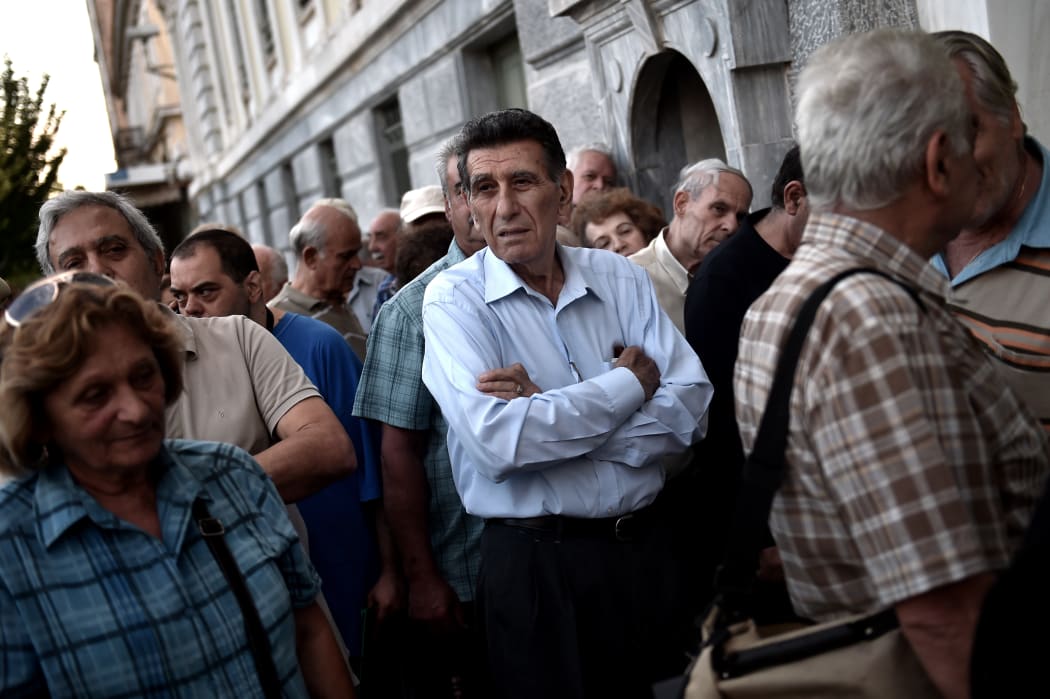
Some banks re-opened in Greece this month - but only to allow pensioners to make a limited one-off weekly withdrawal. Photo: AFP
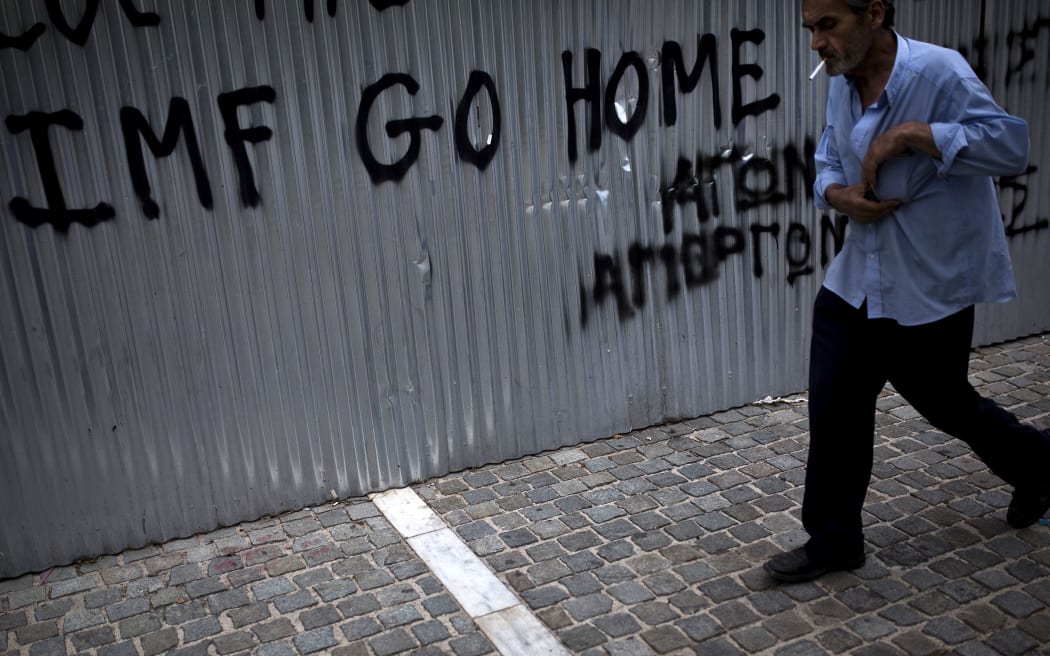
A man walks in front of a graffiti reading ''IMF, go home'' in Athens. Photo: AFP



